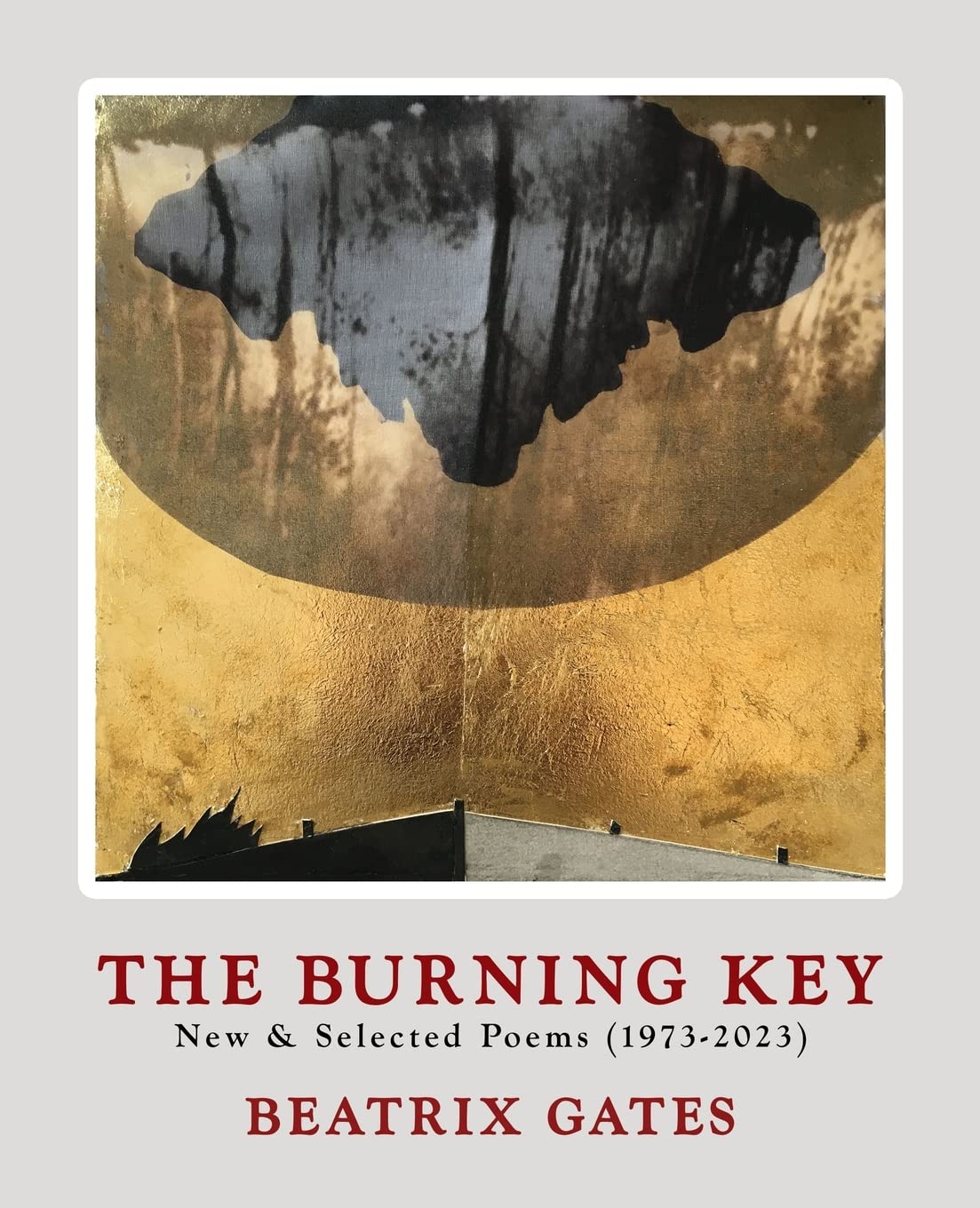Review of The Burning Key: New & Selected Poems (1973-2023) by Beatrix Gates

The Burning Key: New & Selected Poems (1973-2023)
Beatrix Gates
Thera Books, 2023, 300 pages
$22.95
Reviewed by Laura Gibbs
In The Burning Key: New & Selected Poems (1973-2023), Beatrix Gates offers an enchantingly diverse collection of poems, both published and new to the presses. Despite their vast temporal and thematic differences, all of the poems presented here share a striking sense of emotional honesty.
This edition of new and selected poems paints an intricate and intimate portrait of Gates’s admirable poetic career. As well as the collections published as part of The Burning Key, Gates’s work has appeared in journals such as Sinister Wisdom and The Kenyon Review and anthologized in Gay & Lesbian Poetry in Our Time (St. Martin’s, 1988), The World in US: Lesbian & Gay Poetry of the Next Wave (St. Martin’s, 2000), and Things Shaped in Passing: More “Poets for Life” Writing from the AIDS Pandemic (Persea, 1995). By including poems written from 1973 to 2023, The Burning Key offers a detailed and thoughtful sense of Gates’s poetic journey. The collection provides us with intense and distilled snapshots of moments along this journey, from the haunting strangeness of Shooting at Night (1980) to the accepting resignation of a constantly changing nature in desire lines (2020). The collection comes to feel like a museum of a life–its artifacts are displayed with precise curatorial care so as to best reflect the visionary wisdom that blazes through even Gates’s shortest poems.
One of the most arresting sections of The Burning Key is the New & Reclaimed Poems. These previously unseen or revised poems are notable for their refreshing sense of vitality. The poem “Sunspots,” for example, has a visceral effect on the reader through its unusual lineation and rich soundscape. “Outpost” is another standout from this section, with its playful prosodic construction and breathlessly quick movement.
The poems included from Gates’s 1998 collection In the Open provide some of the most emotionally complex and lyrically challenging moments of The Burning Key. The poem “Cut Scenes” details intense feelings of loss interspersed with an appreciative recognition of the beauty of the natural world around the speaker. “Flowing Out, Away,” possibly my favourite poem in The Burning Key, provides a moment of exquisite stillness and minute reflection, as “[t]he wicker chair / becomes the one who feels / no love and shines hard / through the white paint.”
Another benefit of the vastness of the temporal selection provided in The Burning Key is that it allows us to see developments as well as to make connections across Gates’s poetic career. The formal experiments of the 2006 collection Ten Minutes, for example, where Gates consistently tries her hand at the prose poem, can be connected to her playfulness with form in desire lines, where the poem’s attention to seasonality and transience is reflected in its terse lines and white space spread over multiple pages.
Overall, Gates’s The Burning Key is a fitting celebration of an illustrious poetic career. The collection is a testament to Gates’s visionary verse, her commitment to exposing painful truths, and offering hope through resistance.
Laura Gibbs is a former Sinister Wisdom intern and master’s student based in Scotland. Her poetry has been published in Ink Sweat & Tears, and The Gentian. Her hobbies include spending all her money in bookstores and sitting by the sea. You can follow her on Instagram @lauramusing.
"Empowerment comes from ideas."
― Charlene Carruthers
"Your silence will not protect you."
— Tourmaline
"Gender is the poetry each of us makes out of the language we are taught."
— Leila Raven


